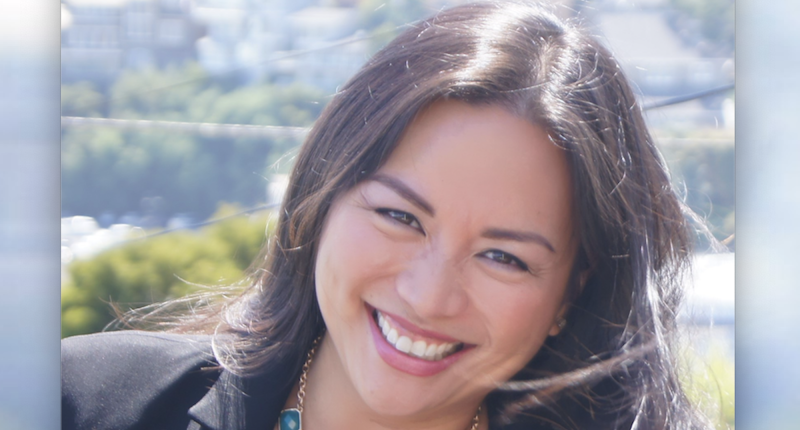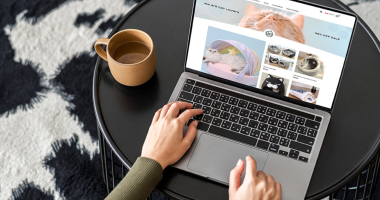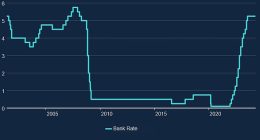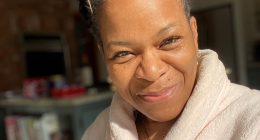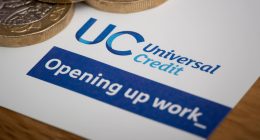
In this ongoing series, we are sharing advice, tips and insights from real entrepreneurs who are out there doing business battle on a daily basis. (Answers have been edited and condensed for clarity.)
Who are you and what’s your business?
I am Patricia Santos, CEO and founder of Volition Beauty, a creator-led prestige beauty platform for efficacious, clean, vegan and cruelty-free skincare. We turn creators into beauty entrepreneurs and their ideas into sell-out products. We sell on volitionbeauty.com and ithrough partner retailers like Ulta, Goop, Dermstore, Amazon, Costco, and more.
I founded the company in 2017. In 2018, one of our very first products, the Prismatic Luminizing Shield SPF50, sold out in 24 hours and had a 10,000 waitlist. In 2023, our new launch, the Sémillon Retinol Serum, sold every two minutes. It’s been an amazing ride.
What inspired you to create this business?
My journey started back in Boston in the late 2000s. I was an investor at a big venture capital fund. I was lucky enough to be meeting and backing and funding some amazing entrepreneurs, which was the awesome part of the job. But the not-so-awesome part was that I saw some incredible beauty founders not getting funded. Today less than 2% of venture funding goes to women, so you can imagine how bad it was back in the early 2000s!
Part of the problem was that these entrepreneurs didn’t look like the investors they were pitching. VCs (other than me) didn’t buy or use the products they were selling and therefore didn’t understand their companies or their brands. I wanted to change that — I became obsessed with changing that — and give these amazing entrepreneurs an alternative way to get their groundbreaking product ideas to market.
What was your biggest business challenge and how did you pivot to overcome it?
Egregious supply chain issues during the pandemic, brick-and-mortar-store closures, increased competition, just to name a few. And like many DTC brands that were built online, one huge challenge has been the growing inefficiency of prospecting new customers on social media. We have seen CACs rise 200-300% over the years!
We have pivoted since the pandemic to focus more on recruiting creators rather than paying the platforms that don’t perform. Our creators are more authentic, create bespoke products for their audiences and drive innovation. They drive our point of difference. While their support and social posts build awareness, Volition supports them by helping build brand loyalty by nurturing these new customers and driving repeat purchasing via email, social media, text/SMS and our loyalty program.
What advice would you give entrepreneurs looking for funding?
Think differently. VC funding in 2023 was less than half of 2022 levels. Funding for consumer brands is virtually non-existent. A lot of VCs played tourist in categories they did not know much about — beauty, e-commerce, fashion — and they ended up losing a lot of money, unfortunately. The way that entrepreneurs in these categories will get funded going forward is not going to be the same as it was in the past.
That is one of the main reasons Volition started our Beauty Accelerator in partnership with our investor, Emil Capital Partners. The Accelerator is designed to assist entrepreneurial creators looking to break into the competitive beauty industry. The program will culminate in an all-expenses-paid trip to New York City for a workshop with Volition mentors and executives, covering capital-raising, brand-building and beauty product innovation, hosted by investor Emil Capital Partners. The most compelling business cases will have the opportunity to commercialize their own beauty brand within the newly launched Creator Brands division of Volition.
What does the word “entrepreneur” mean to you?
There is a word in Tagalog (my native language as I grew up in the Philippines) – “makulit”. And it means persistent and persevering, but to the point where you might wear out your welcome or annoy people. I think the day-to-day of being an entrepreneur requires this. You have to fight for perfection in your products and demand the best from your employees, your vendors and your partners. Sometimes, especially in the beginning when you aren’t big or aren’t buying huge volumes, people will find that annoying. But entrepreneurs persist despite that. I think all entrepreneurs need to be makulit to build something great from nothing.
What is something many aspiring business owners think they need that they really don’t?
A big seed round to get started. For the past 10 years, seed rounds have ballooned from less than $1 or 2 million to $10, $20 sometimes $60 million! So many brands that started during this time never had to figure out how to build a good, profitable business or even acquire their customers economically. They were never forced to find product-customer fit because they just threw advertising dollars at Meta to push their volumes up… even if it made no economic sense. But times are changing and that is not the way to build a business that will get funded now. The pendulum is swinging and investors want to back entrepreneurs who are scrappy and want to build a sustainable business.
